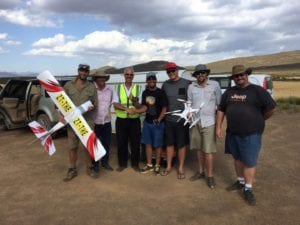Flying legally
To fly a drone legally the operator needs three items of paperwork: the drone, pilot and company all need to be licenced.UAV Industries offers pilot certification – the equivalent in manned aviation of a commercial pilot’s licence. The course includes a pre-on-site program, two weeks full-time on site and ground school and flight school, totalling three to four weeks in total.
A Civil Aviation designated examiner tests every single student to Civil Aviation standards before a licence is issued. “There is a lot of detail and requirements that are needed for people to understand the airspace that one’s operating. We need this time to shape expert flyers into commercial flyers. It’s not the ability so much to fly a drone, but it’s that concept of safe flying – all the risk assessments that go around a mission or a flight, and understanding how to integrate manned and unmanned aviation,” explains Donaldson. “Crucial in our course is airmanship. You can be the best radio control aircraft flyer, but you’ll fail our course if you don’t have situational awareness of, not just the drone, but the other users of the airspace around you – people on the ground, buildings, and property.” As part of the course, UAV Industries facilitates the entire process with Civil Aviation for trainees to get their “red book” – the pilot’s licence – leaving the pilot to ensure they have a legal Remote Operating Company (ROC) and that the drone is registered.







